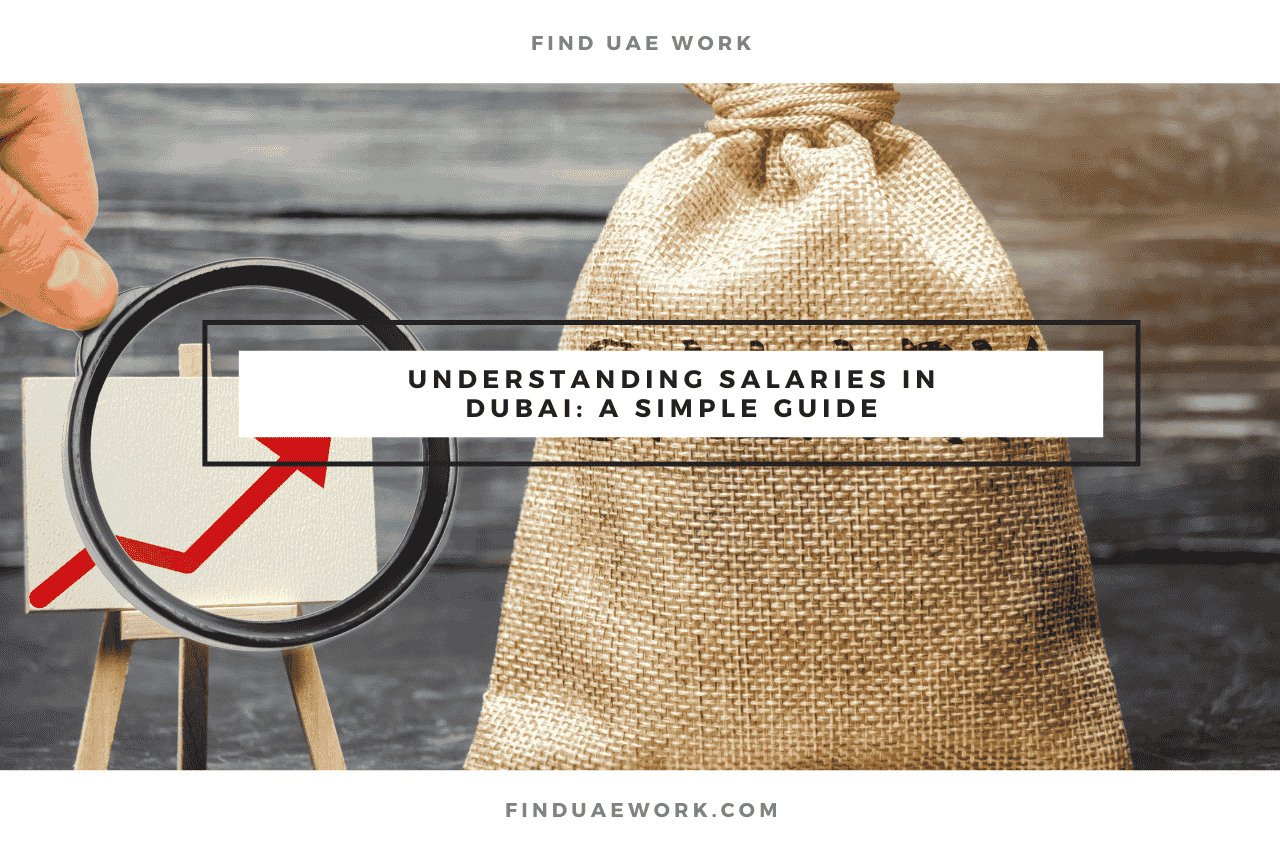Dubai is a popular destination for professionals from around the world. While it doesn’t have a fixed minimum wage, the city has strong labor laws that ensure fair pay and protect employees’ rights. In this guide, we’ll break down how salaries are determined in Dubai, what factors influence pay, and how the UAE’s Wage Protection System (WPS) works to keep things fair.
Why There’s No Fixed Minimum Wage in Dubai
Unlike some countries, Dubai doesn’t set a nationwide minimum wage. Instead, salaries are decided through negotiations between employers and employees. This helps create a competitive job market, where the amount you earn depends on several things:
- Job Role and Responsibilities
The more complex and important the job, the higher the salary. For example, managers and skilled professionals usually earn more than entry-level workers. - Industry Standards
Different industries pay different amounts. Jobs in sectors like finance, technology, and healthcare generally offer higher salaries than jobs in retail or construction. - Experience and Qualifications
The more experience and qualifications you have, the higher your salary will likely be. - Performance-Based Pay
If you perform well in your job, you may get bonuses, raises, or promotions.
How UAE Labor Laws Protect Workers
Even though Dubai doesn’t have a set minimum wage, there are laws in place to ensure fair pay for workers. Here’s a look at some important laws that protect employees:
1. Fair Wages
Employers are required to offer salaries that are competitive and reflect the job’s difficulty, the employee’s qualifications, and industry standards.
2. No Discrimination
The UAE has strict laws that make it illegal to discriminate based on gender, race, religion, or nationality.
3. The Wage Protection System (WPS)
The WPS is a system set up by the Ministry of Human Resources and Emiratisation (MOHRE). It makes sure salaries are paid on time by requiring employers to pay employees through approved financial channels. This ensures transparency and reduces wage disputes.
How Much You Can Expect to Earn in Dubai
Salaries in Dubai vary depending on your job and level of expertise. Here’s an overview of what you can expect to earn in different roles:
High-Skilled Jobs
Professionals like engineers, doctors, and IT experts typically earn higher salaries.
Salary Range: AED 8,000 to AED 30,000+ per month
Unskilled Jobs
Workers in jobs such as construction, retail, or domestic services usually earn less.
Salary Range: AED 1,200 to AED 4,000 per month
| Job Title | Salary Range (AED) |
|---|---|
| General Manager | 35,000+ |
| Software Engineer | 11,000 |
| Business Development Manager | 14,000 |
| Nurse | 6,000 |
| Domestic Worker | 1,830 |
| Customer Service Representative | 5,554 |
How the Wages Protection System (WPS) Helps Employees
The WPS is designed to ensure that workers are paid on time and that employers are held accountable for their payments. Here’s how it benefits employees:
- Timely Payments
Employers are required to pay employees on time, directly into their bank accounts. - Transparency
The WPS ensures that there is a clear record of salary payments, which reduces the chances of errors. - Fewer Wage Disputes
The WPS helps prevent arguments over unpaid wages, making the whole process smoother. - Employee Confidence
Employees feel secure knowing that their wages are protected by law.
Frequently Asked Questions (FAQs)
1. Is there a minimum wage in Dubai?
No, Dubai doesn’t have a fixed minimum wage. Salaries are based on negotiations between employers and employees.
2. How are wages protected in Dubai?
Wages are protected by the WPS, which ensures that salaries are paid on time through approved financial channels.
3. What is the salary range for unskilled workers?
Unskilled workers typically earn between AED 1,200 and AED 4,000 per month.
4. Are bonuses common in Dubai?
Yes, many employers offer bonuses or raises based on performance.
5. Is discrimination in wages allowed in Dubai?
No, the law strictly prohibits discrimination based on gender, race, religion, or nationality.
Conclusion
While there’s no official minimum wage in Dubai, the city has strong labor laws and a system in place to ensure fair pay for all workers. By understanding how salaries are determined and how the WPS protects your wages, you can confidently navigate Dubai’s job market. Whether you’re just starting your career or negotiating a new job offer, knowing your rights will help you make informed decisions.
- UAE WORK-Urgent Hiring: Pakistani Return Mixer Heavy Drivers for Saudi Arabia - February 28, 2025
- UAE Work -Office Assistant Job in Dubai – Apply Now! - February 27, 2025
- UAE Work Haram Sharif Cleaner Jobs in Makkah – 15 Vacancies Available - February 26, 2025
Important Notice: Genuine employers will never ask for payment during the job application, interview, or hiring process. If someone requests payment for job applications, tests, or interviews, it’s likely a scam. Protect yourself by staying cautious and reporting any suspicious activity immediately. Stay vigilant and safeguard your career!

